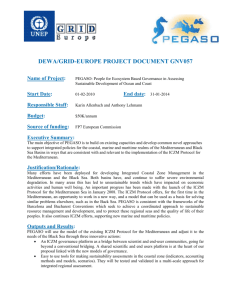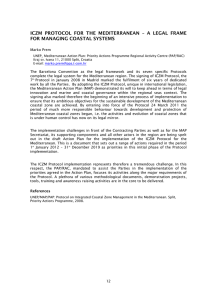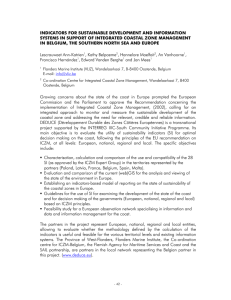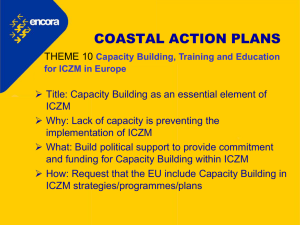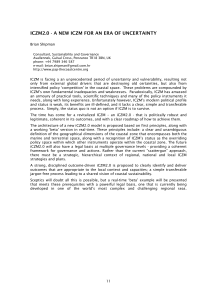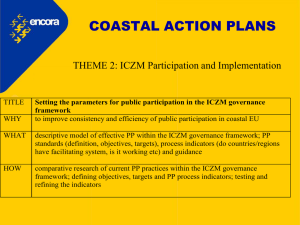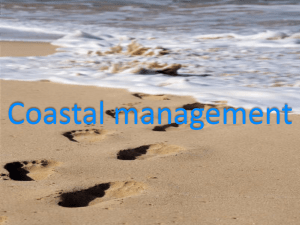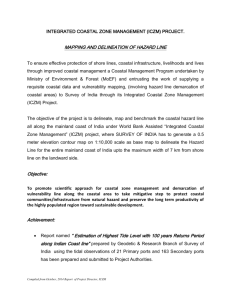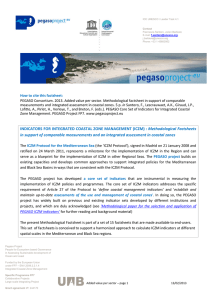THE PEGASO PROJECT: INTEGRATED COASTAL ZONE Breton Françoise , Antonio Trujillo-Martinez
advertisement
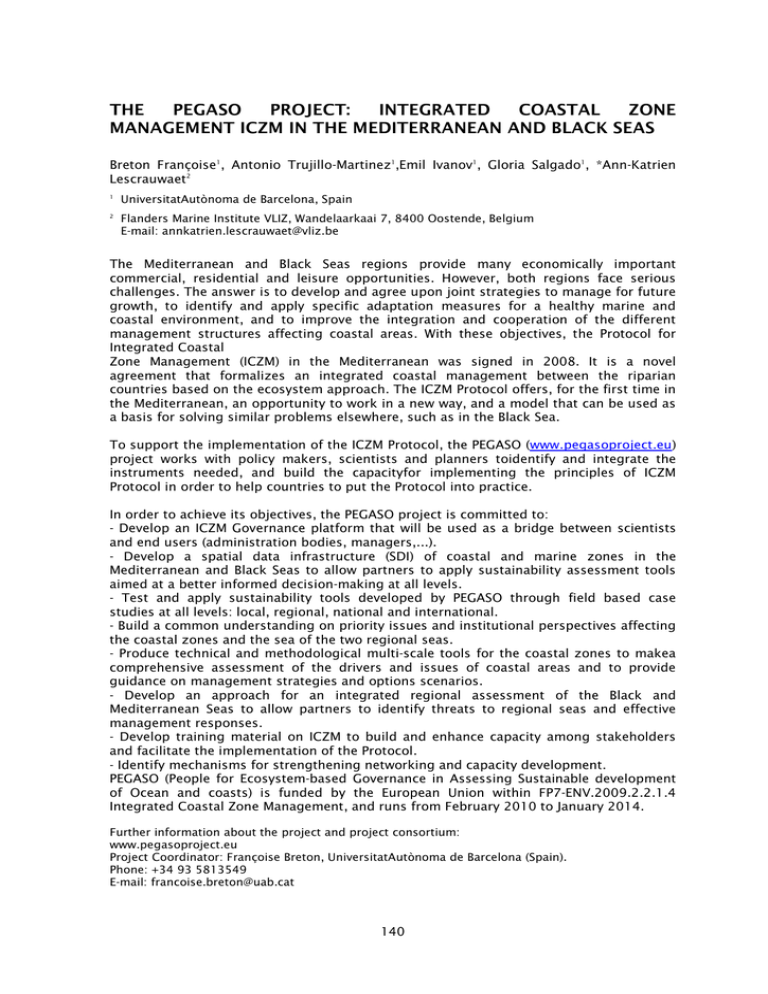
THE PEGASO PROJECT: INTEGRATED COASTAL ZONE MANAGEMENT ICZM IN THE MEDITERRANEAN AND BLACK SEAS Breton Françoise1, Antonio Trujillo-Martinez1,Emil Ivanov1, Gloria Salgado1, *Ann-Katrien Lescrauwaet2 1 UniversitatAutònoma de Barcelona, Spain 2 Flanders Marine Institute VLIZ, Wandelaarkaai 7, 8400 Oostende, Belgium E-mail: annkatrien.lescrauwaet@vliz.be The Mediterranean and Black Seas regions provide many economically important commercial, residential and leisure opportunities. However, both regions face serious challenges. The answer is to develop and agree upon joint strategies to manage for future growth, to identify and apply specific adaptation measures for a healthy marine and coastal environment, and to improve the integration and cooperation of the different management structures affecting coastal areas. With these objectives, the Protocol for Integrated Coastal Zone Management (ICZM) in the Mediterranean was signed in 2008. It is a novel agreement that formalizes an integrated coastal management between the riparian countries based on the ecosystem approach. The ICZM Protocol offers, for the first time in the Mediterranean, an opportunity to work in a new way, and a model that can be used as a basis for solving similar problems elsewhere, such as in the Black Sea. To support the implementation of the ICZM Protocol, the PEGASO (www.pegasoproject.eu) project works with policy makers, scientists and planners toidentify and integrate the instruments needed, and build the capacityfor implementing the principles of ICZM Protocol in order to help countries to put the Protocol into practice. In order to achieve its objectives, the PEGASO project is committed to: - Develop an ICZM Governance platform that will be used as a bridge between scientists and end users (administration bodies, managers,...). - Develop a spatial data infrastructure (SDI) of coastal and marine zones in the Mediterranean and Black Seas to allow partners to apply sustainability assessment tools aimed at a better informed decision-making at all levels. - Test and apply sustainability tools developed by PEGASO through field based case studies at all levels: local, regional, national and international. - Build a common understanding on priority issues and institutional perspectives affecting the coastal zones and the sea of the two regional seas. - Produce technical and methodological multi-scale tools for the coastal zones to makea comprehensive assessment of the drivers and issues of coastal areas and to provide guidance on management strategies and options scenarios. - Develop an approach for an integrated regional assessment of the Black and Mediterranean Seas to allow partners to identify threats to regional seas and effective management responses. - Develop training material on ICZM to build and enhance capacity among stakeholders and facilitate the implementation of the Protocol. - Identify mechanisms for strengthening networking and capacity development. PEGASO (People for Ecosystem-based Governance in Assessing Sustainable development of Ocean and coasts) is funded by the European Union within FP7-ENV.2009.2.2.1.4 Integrated Coastal Zone Management, and runs from February 2010 to January 2014. Further information about the project and project consortium: www.pegasoproject.eu Project Coordinator: Françoise Breton, UniversitatAutònoma de Barcelona (Spain). Phone: +34 93 5813549 E-mail: francoise.breton@uab.cat 140

